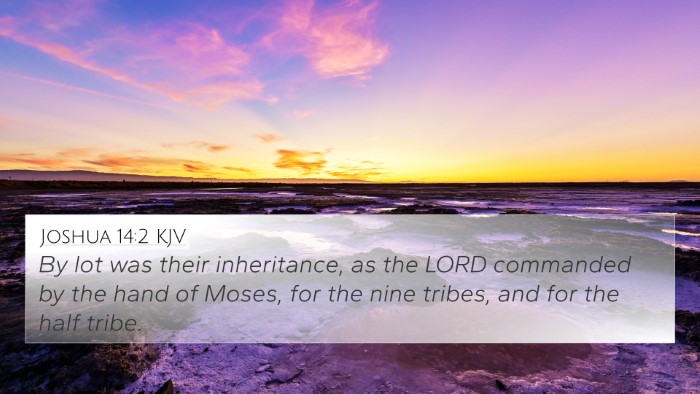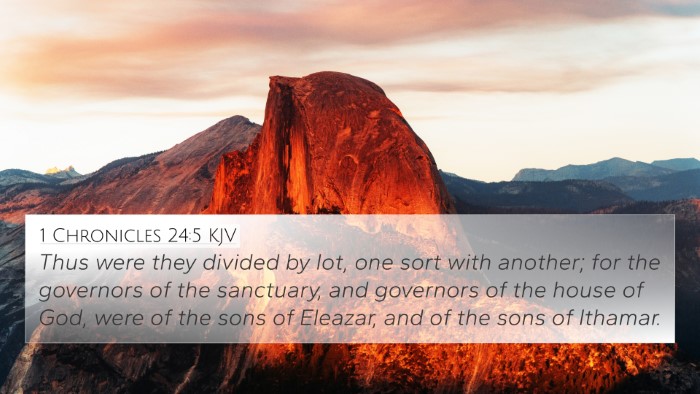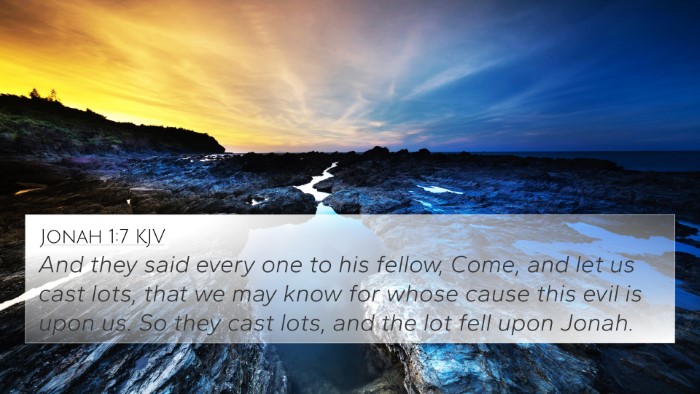Understanding Judges 20:9
Judges 20:9 states: "But I will send a signal throughout all the tribes of Israel, and they will gather to you." In this verse, the Israelites are preparing to go to war against the tribe of Benjamin due to an atrocity committed in Gibeah.
Commentary Insights
Matthew Henry's Commentary
Henry emphasizes the grave situation Israel finds itself in, calling for a united approach to address the sins within their community. The signal sent implies a call to arms, reflecting both the seriousness of the offense and the urgency for collective action among the tribes. This communication showcases God's providential guidance through human leaders in times of crisis.
Albert Barnes' Notes on the Bible
Barnes points out that the gathering of Israel signifies the seriousness of the situation and the need for unity among the tribes. The command to gather also indicates both the premeditated nature of the forthcoming battle and the moral imperative felt by the people of Israel to rectify the wrongs perpetrated against their own. He notes that this mobilization serves as a pivotal moment in Israel's history, showing the necessity for justice.
Adam Clarke's Commentary
Clarke elaborates on the importance of communal responsibility illustrated in this verse. He notes that the disaster impacts all tribes of Israel, not just the tribe of Benjamin. Clarke highlights how this unity is essential for restoration and serves as a biblical model for resolving internal conflicts. He emphasizes God’s role in guiding these actions, suggesting divine oversight even amid chaos.
Bible Cross References
- Judges 19:30 - Highlights the seriousness of the incident that sparked this response.
- Deuteronomy 13:12-15 - Discusses the consequences of sin in the community, setting a precedent for collective action.
- Joshua 22:12 - Reflects similar instances of Israel gathering to confront issues among themselves.
- 1 Samuel 11:7 - Illustrates the calling together of Israel under Saul to face an external threat, paralleling the themes of unity and moral obligation.
- 1 Corinthians 5:6-7 - Discusses the need for church discipline and highlights the importance of maintaining purity within the community.
- Galatians 6:1 - Encourages believers to restore those caught in sin, reflecting communal responsibility akin to the events in Judges.
- Matthew 18:15-17 - Offers a New Testament approach to addressing sin within a community, akin to the Israelites’ response.
- Hebrews 10:24-25 - Calls for stimulating one another to love and good deeds, reinforcing the concept of collective action in faith.
- Acts 15:4 - Describes the gathering of the apostles and elders to address significant issues in the early church, mirroring the gathering in Judges.
- Revelation 21:12-14 - Symbolizes the tribes of Israel as part of the new city, emphasizing the continual identity and unity of God's people.
Connecting Bible Verses
This verse serves as a critical juncture for examining the communal nature of addressing sin, a theme prevalent across both the Old and New Testaments. The connections between Judges 20:9 and New Testament passages such as Matthew 18:15-17 suggest a continuity of principles regarding community accountability.
Themes for Cross-Referencing
The thematic connections between the verses lead to a deeper understanding of topics such as:
- Justice and Accountability: As seen in Deuteronomy 13:12-15 and 1 Corinthians 5:6-7.
- Unity Among Believers: Highlighted again in Hebrews 10:24-25 and Acts 15:4.
- Divine Guidance During Conflict: Paralleled with 1 Samuel 11:7.
- Restoration of Community: Explored in Galatians 6:1.
- Historic Significance of Israel: Reflected in Revelation 21:12-14.
Practical Tools for Bible Cross-Referencing
Utilizing tools for effective Bible cross-referencing enhances the depth of study. Some invaluable resources include:
- Bible Concordances: To locate specific terms and their occurrences.
- Bible Reference Resources: Such as cross-reference guides and chain references.
- Bible Study Software: Which can help with identifying connections efficiently.
- Offline Resources: Physical copies of commentaries and concordances that offer profound insights into scripture.
Conclusion
The exploration of Judges 20:9 reveals not only the historical context of Israel’s response to sin within its midst but also highlights the importance of communal efforts in seeking justice and restoration. The interconnectedness of biblical texts provides a rich tapestry for understanding how ancient principles continue to influence contemporary Christian faith and practice.
For anyone searching for interpretations and explanations of Scripture, utilizing cross-referenced approaches helps illuminate the timeless relevance of the Bible.









